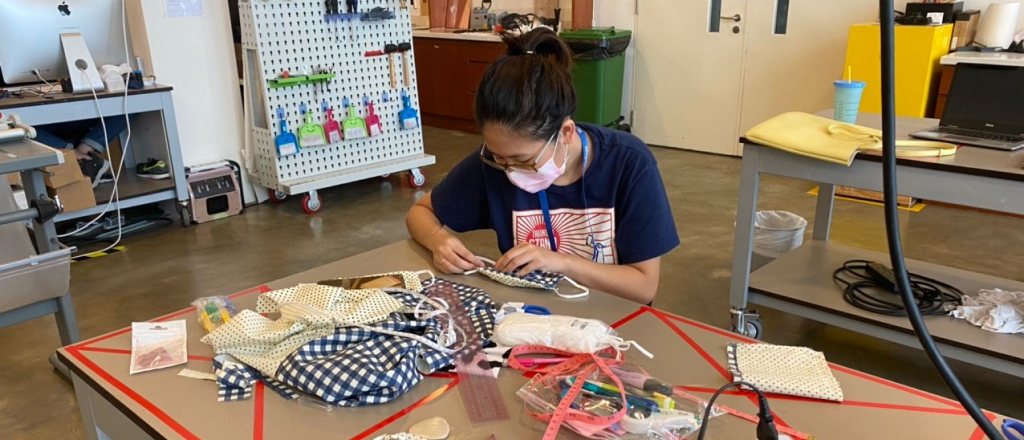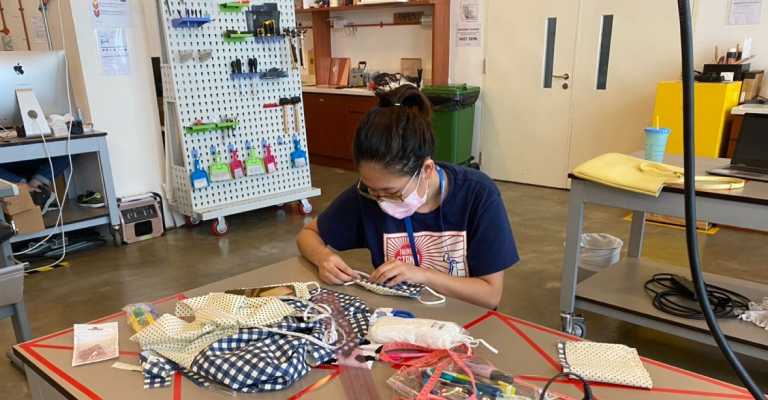Project Deko utilises fun science comic workshops to effectively educate and empower underprivileged and special needs youths.
About the project
Project Deko’s workshops revolve around the COVID-19 pandemic, with comics used as a tool to educate and encourage dialogues amongst youths.
Project Deko is a non-profit initiative by Deko, a Singapore-based start-up that equips educators with an art-based e-curriculum on various subject matters, ranging from COVID-19 to mental health.
Intention and Impact
Deko aims to tackle the urgent need for creative educational resources and emotional support for underprivileged and special needs youths. As highlighted by their partnering organisations, underprivileged and special needs youths in Singapore urgently require both emotional and academic support to succeed in the future. Only by being empowered and by acquiring the necessary skills to learn can youths increase their employability and succeed in the future. The project received funding from CIPE’s Service in the City (SitC) grant; this went towards art materials used in sessions and educational workbooks (crafted by Deko, in consultation with advisors and practitioners) that were distributed to workshop participants. They also engaged with CIPE advising to review their project aims (including problem definition and impact measurements).
Advice for Potential SiTC participants
Project Deko was created on a whim and wouldn’t have been born if we had not decided to take initiative and reach out to Yale-NUS faculty and CIPE for mentorship and advice. We knew that we wanted to create impact with something science-related and only after weeding out the bad ideas through action did we find what worked for us. – RICHARD & HUANYAN
Personally, my biggest takeaway from this project is that being a science teacher is hard, but deeply rewarding. It’s challenging to lead a lesson in an educational, entertaining, and engaging manner. Huanyan and I were lucky, where a lot of the youths we encountered enjoyed our creative idea of using art — along with our cute characters Dumble and Neko — as a medium to study complex topics such as vaccine development and virus mechanics. However, it was still a challenge to figure out the best way to teach in a way that enables information retention and encourages creative thinking. During my time teaching, I found that encouraging the children to draw in groups on a large canvas (big piece of paper or the whiteboard) to be most effective in addressing my aforementioned challenge. Although a lot of work and effort was required, it nevertheless was a joy to watch the youths draw silly characters together and create meaningful COVID-19 narratives. – RICHARD
Similar to Richard, it was initially challenging to balance between allowing the children to have fun with being creative, and actually learning something. The Singapore curriculum had unfortunately led the children to believe that “learning” and “science” is something dreadfully boring, and it took some time for me to fully engage the children in learning despite our initial rapport. Our efforts to engage the children more effectively, such as being flexible with the order in which content is taught so we can leverage on what is familiar and what they are most curious about, has definitely paid off as we begin to see more active engagement in the course content. More importantly, this experience provided much insight into how we can design courses similar to this in future, and bring back the joy in learning for all children. – HUANYAN





